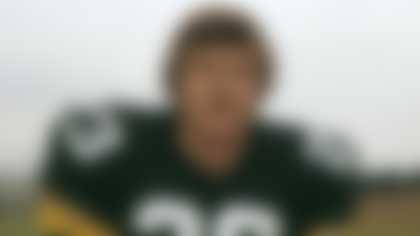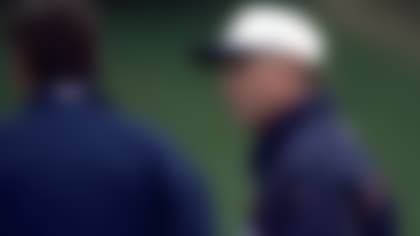By Bill Bradley, contributing editor
The ruling in the New York Jets' overtime win over the New England Patriots on Sunday was exactly what the NFL Competition Committee had in mind when it created the line-overload rule for field goals and point-after kicks, vice president of officiating Dean Blandino said.
Nick Folk made a 42-yard field goal with 5:07 left in OT, lifting the Jets over the Patriots 30-27. Folk made the kick minutes after his 56-yard attempt sailed wide left, but he was given a second chance after New England's Chris Jones was called for unsportsmanlike conduct because he pushed a teammate forward while trying to block the kick. That's illegal per the line-overload rule.
"This is an example of the new rule change for 2013 season that prohibits defensive players from pushing teammates into the offensive formation," Blandino said in an interview that aired Sunday night on NFL Network's "NFL GameDay Highlights." "When you look at the play, you can see New England No. 94 (Jones) pushing New England No. 74 (Will Svitek) into the (offensive) formation. That's a violation of the rule.
"It was put in for player safety and it is the correct call."
Patriots coach Bill Belichick wasn't happy with the call, which was explained to all players and coaches by Blandino's representatives during training camp.
According to the rule change passed in March:
"We've seen it before and it hasn't been called," Blandino said. "This is the first time it's been called."
The rule was proposed because defensive teams were rushing through the gaps created by the overload during the 2012 season. After looking at a lot of tape, NFL Competition Committee members found too many injuries were caused by this tactic.
"They will no longer permit defense rush players, Team B players, to push their teammates through the gaps and overload," NFL Competition Committee member and St. Louis Rams coach Jeff Fisher said in the spring. "This proposal also creates a situation where the snapper now becomes a defenseless player and he gets helmet-to-helmet protection."



